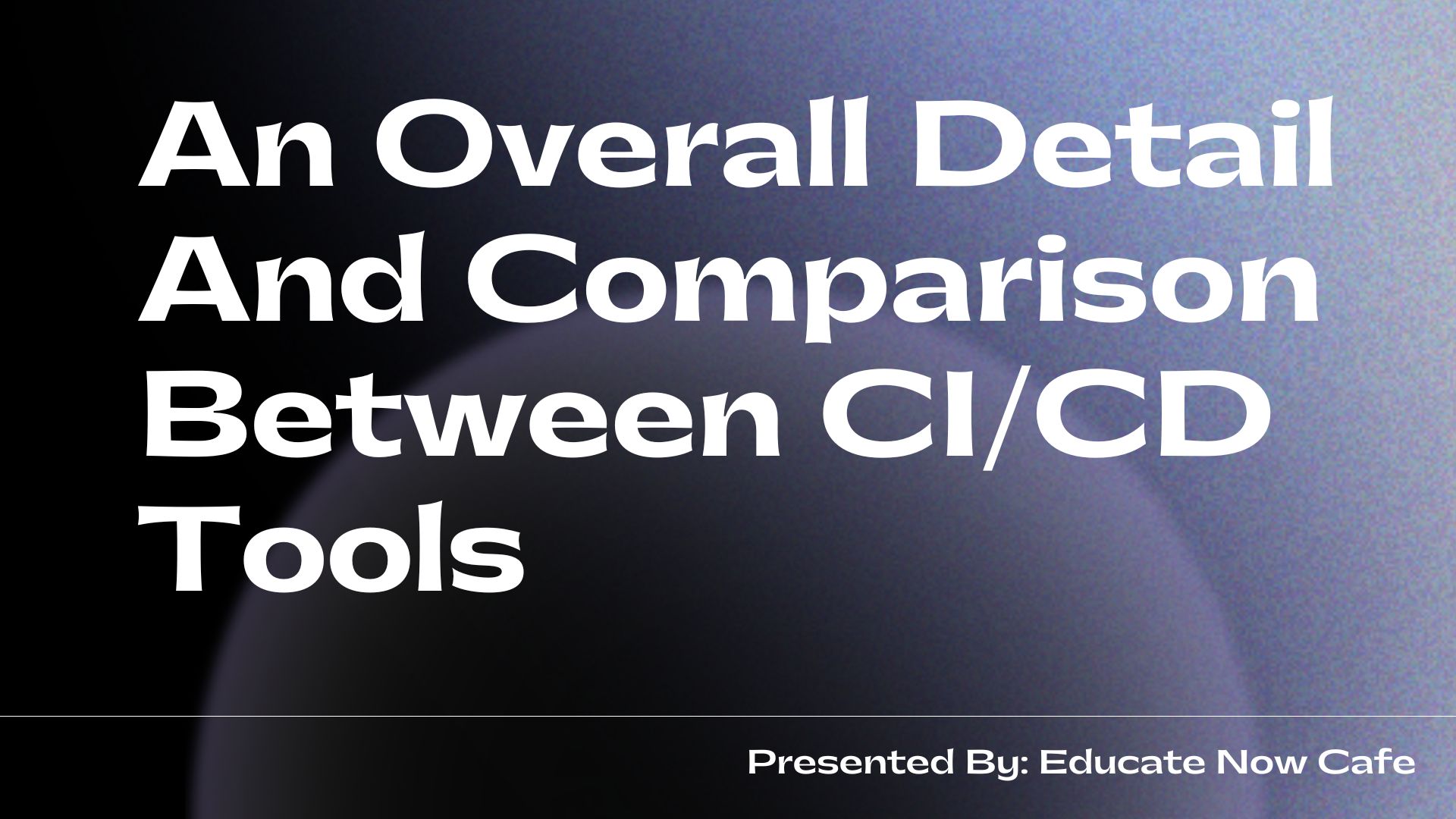Comparison Between CI/CD Tools
What is CI/CD?
CI/CD stands for Continuous Integration (CI) and Continuous Delivery (CD). Originally aimed at desktop applications, these practices are now widely used for web and cloud services. Continuous integration and continuous delivery work together to automate software development, allowing code changes to be integrated and delivered quickly and efficiently. This automation helps ensure that updates can be rapidly deployed from developers’ desktops to production environments.
CI/CD accelerates the time it takes for software to reach the market. In this process, code is continuously integrated and delivered, enabling the swift introduction of new features and improvements. In Continuous Integration (CI), developers frequently merge their code changes into a shared repository, where automated builds and tests are run. This practice ensures that code changes are consistently tested and integrated. Continuous Delivery (CD), on the other hand, automates the deployment process, ensuring that code changes are automatically tested and prepared for release to production.
CD encompasses various tasks, including deploying new features, fixing bugs, and making configuration changes, all aimed at enhancing the production environment.
Advantage Of CI/CD Tools
- CI/CD tools facilitate better collaboration among development teams.
- CI/CD tools provide immediate feedback on code changes through automated testing and continuous integration. Developers can quickly identify issues and address them, resulting in a more efficient development process.
- CI/CD tools help in efficiently managing resources by automating tasks and optimizing workflows.
- By identifying and resolving issues early, CI/CD reduces the cost associated with fixing bugs in later stages of development.
- Continuous delivery automates the deployment process, ensuring that each release is consistent and reliable.
Best 5 CI/CD Tools
♦ Circle CI
CircleCI is a robust, open-source project designed to deliver CI/CD pipelines seamlessly integrated into workflows. It supports a variety of programming languages across major platforms like Mac OS, Linux, and Windows, and extends its capabilities to popular cloud platforms such as Google Cloud, Azure, and AWS. CircleCI prioritizes scalability and speed, making it easily distinguishable for its performance. You can access CircleCI for free or opt for premium features starting at $30 per month. It automates the process of building, testing, and deploying software applications, ensuring that code changes are systematically integrated and deployed across various environments. CircleCI supports a wide range of programming languages and cloud platforms, making it versatile for modern software development practices.
♦ Jenkins
Jenkins is a widely-used CI/CD tool that helps automate the software development process. It allows teams to continuously build, test, and deploy their code efficiently. Jenkins supports various plugins and integrations, making it versatile for different environments and technologies. Its flexibility and robust community support make it a popular choice for automating workflows in DevOps practices.
Jenkins is a popular open-source automation server used for continuous integration and continuous delivery (CI/CD). It helps automate the parts of software development related to building, testing, and deploying, facilitating a more streamlined and reliable development process.
♦ TeamCity
TeamCity, developed by JetBrains, is an open-source, highly extensible tool built on CI/CD principles in Java. JetBrains, known for creating IntelliJ IDEA and PyCharm, also offers TeamCity, which can be installed on both Linux and Windows servers. While TeamCity offers a 14-day free trial, it costs $45 per month thereafter. The tool supports deploying configured agents within a Kubernetes cluster.
TeamCity is a powerful and user-friendly Continuous Integration and Continuous Deployment (CI/CD) server developed by JetBrains. It automates the process of building, testing, and deploying code, helping teams deliver high-quality software faster.
♦ GitLab
GitLab CI/CD is a built-in continuous integration and continuous deployment tool that helps developers automate the process of testing, building, and deploying their code. It’s integrated into GitLab, making it easy to manage and configure directly from your project repository.
GitLab is a set of tools that helps you manage every step of creating software. At its heart, it’s a web tool for handling Git repositories. It comes with extras like tracking issues, analyzing data, and a Wiki for documentation. Using GitLab, you can automatically start building, testing, and deploying your code whenever you make a change. You can set up tasks to run in a virtual machine, Docker container, or on a different server.
♦ CodeShip
Codeship is a popular CI/CD tool that developers use to set up pipelines. These pipelines automatically run processes whenever code changes are made and pushed to the repository. Codeship also integrates with major platforms like Google Cloud Platform, AWS, and Heroku.”
CodeShip is a cloud-based Continuous Integration and Continuous Deployment (CI/CD) tool that automates the process of building, testing, and deploying software. It helps development teams deliver high-quality applications more efficiently.
Conclusion:
In today’s fast-paced software development landscape, CI/CD tools play a crucial role in enabling teams to deliver high-quality applications with speed and reliability. Whether you opt for tools like TeamCity, CodeShip, Jenkins, or others, the goal remains the same: automate and streamline the build, test, and deployment processes.











